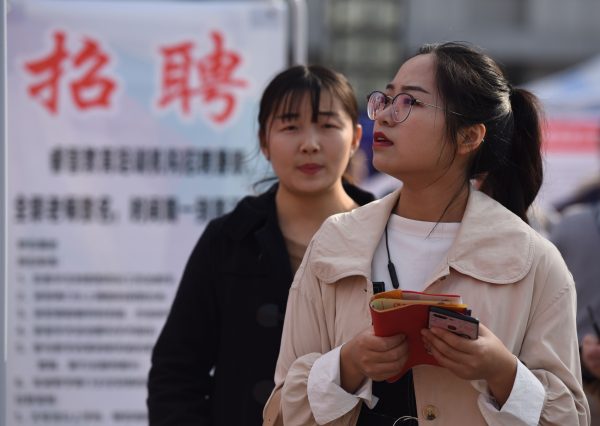Part of that collective reckoning is taking place inside the National People’s Congress (NPC), China’s most powerful legislative body. Lawmakers are gearing up to amend the Law on the Protection of Women’s Rights and Interests (LPWRI). Enacted in 1992, the LPWRI went through two revisions in 2005 and 2018. In a third attempt to streamline the law, the NPC aims to address some of the most intractable problems in Chinese society, including human trafficking, sexual harassment, gender discrimination, rising divorce rates and rural women’s continued struggles over landholding.
To tackle these problems, lawmakers have drafted two bills that would expand the LPWRI from 61 to 90 articles. Among the most notable changes in the bill are newly added measures against human trafficking. For example, marriage registration bureaus, township governments, residents’ committees and villagers’ committees would be legally obliged to report incidents of the trafficking of women to the police. The police would then have to conduct a prompt investigation.
This requirement of mandatory reporting is not limited to the public sector. Hotels and other private lodging businesses would also be obliged to contact the police when suspecting illegal or criminal activities against women. In updating the LPWRI, lawmakers strive to articulate the public and the private sectors’ responsibility to protect women’s physical safety and dignity.
The emphasis on upholding women’s dignity — as part of a broader, legislative trend to crystallise citizens’ personality rights (renge quan) — is also evinced in lawmakers’ efforts to fortify the definition of sexual harassment. Though previous legislation — especially the 2005 and the 2018 LPWRI and the newly enacted Civil Code — stipulated against sexual harassment, it barely spelled out what could constitute such an offence.
This time, lawmakers are refusing to shy away from specificity. Illegal sexual advances will include verbal expressions loaded with sexual connotations, inappropriate and unnecessary physical behaviour and using one’s authority to elicit sexual relationships.
When victims of sexual harassment approach government agencies and relevant bodies for remedies, authorities will have to handle their complaints in a timely manner and convey formal decision-making in writing. Also new in the bill are several articles prescribing schools’ roles in preventing sexual harassment, mandatory reporting and protecting victims’ privacy.
To consolidate women’s labour rights, lawmakers propose to better define gender discrimination in employment. This will be done in part by expanding the scope of prohibited conduct on the part of employers. For instance, once the amendment of the LPWRI is finalised, employers can not limit hiring to males or give them priority in employment.
They will not be allowed to go beyond basic requirements to elicit information regarding job candidates’ marital or parental status or to impose restrictions on employees’ childbirth decisions. They will be banned from holding back women’s promotions, rank increases, or evaluations of technical titles on the grounds of marriage, pregnancy, maternity leave or nursing.
Lawmakers are attempting to broaden accountability for advancing gender equality in the workplace by identifying diverse stakeholders. Several articles have been added or revised to assign responsibilities to ‘all levels of people’s government,’ ‘departments for human resources and social security’, ‘relevant departments’, ‘the Women’s Federation’, other ‘mass organisations’ and ‘business enterprises’. All are implicated in and responsible for creating a fair work environment for women.
New measures are also incorporated in the areas of divorce, access to farmland and property arrangements to solidify women’s marital, land and property rights.
The proposed revisions are not without limitations. Just like their predecessors, lawmakers abstain from defining the membership of rural collective economic organisations — the grassroots governing body in charge of farmland distribution, use and management. So the question of who can or cannot enjoy such membership remains in limbo.
This legal ambiguity means that rural women are unable to cite national laws to insist on their membership, a key yardstick used by village leaders to distribute farmland and related benefits. Lawmakers’ silence on this issue, as researchers repeatedly note, has had real and often negative implications for women’s land rights and legal mobilisation.
From its outset, the People’s Republic of China has never lacked formal rules endorsing gender equality. But to what extent will law in practice live up to the law on the books? That question must be asked time and time again over the years to come.
Ke Li is Assistant Professor of Law and Society at the John Jay College of the City University of New York.

